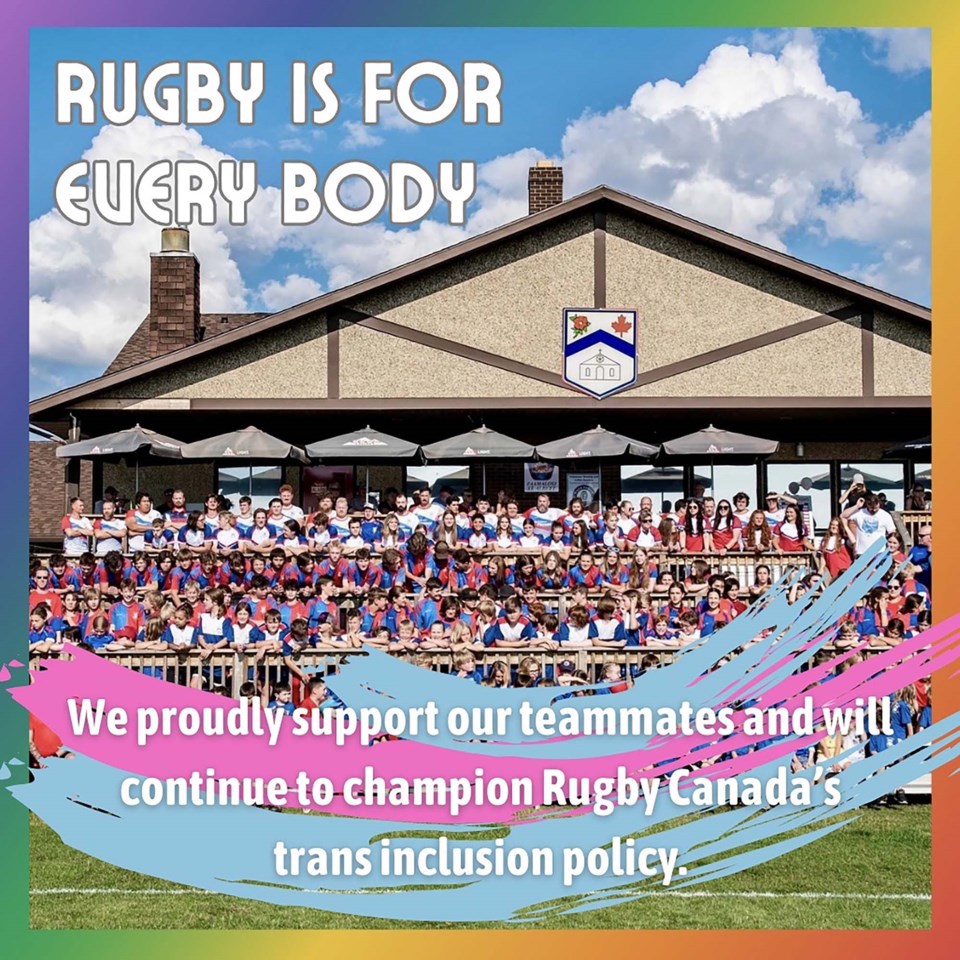St. Albert and Canadian sports groups rallied in support of trans athletes this week following a provincial plan to ban transgender women players from women’s sports.
Alberta Premier Danielle Smith announced a host of policies Jan. 31 that, if implemented in law this fall, would affect women, girls, and transgender athletes.
In a media release, the province said it would work with sporting organizations to ensure “biologically born female athletes” could compete in a biological female-only division without having to compete against transgender women (people assigned as male at birth who identify and live as female) athletes while also expanding co-ed or gender-neutral divisions so trans athletes could participate in the sport of their choice.
When asked if this policy would affect trans male athletes, Kevin Lee, press secretary for the minister of tourism and sport said it would just apply to trans women and girls, “as there are biological realities that give transgender female athletes a competitive advantage over women and girls.”
Sports speak up
The St. Albert Rugby Football Club was one of many sports organizations to speak out in support of trans athletes following the policy announcement, publishing a message on their Facebook page that “Rugby is for Every Body.”
Rugby has long been a very inclusive sport and has allowed trans athletes to participate in accordance with their gender identity since 2019, club president Matt Jarvis said in a phone and email interview.
“(The club) truly believes in the inclusivity of the sport of rugby, and that it really is for everyone,” Jarvis said.
“Policies aimed at limiting the participation of specific minority groups do nothing to help grow the game.”
While he wasn’t sure how many trans athletes were in the St. Albert club, Jarvis said the province’s proposed policies would likely lead to negative experiences for them and may force them to quit the sport. That in turn would make it tougher to find enough players to field teams, which would affect everyone.
Athletics Canada, Ringette Canada, and Canada Soccer are just some of the sports organizations that let athletes participate in whatever teams or categories match their gender identity.
The data shows that many young girls and athletes from lower income and within the 2SLGBTQI+ communities drop out of sport at higher rates than their counterparts, Canada Soccer spokesperson Paulo Senra said in an email.
“We want soccer to be a sport where everyone feels they belong. To actively be passing policy void of facts creates even more barriers and is not how we build a fun, safe, and accessible sports system in our country.”
Science not there
Jarvis said the province’s claim that transgender female athletes have a biological advantage wasn’t supported by science, citing research by the Canadian Centre for Ethics in Sport.
A 2022 literature review by the centre found trans women who have undergone testosterone suppression (such as through hormone therapy) had no clear biological advantage over other women in elite sport.
A 2023 review in Frontiers in Sport and Active Living found transgender athletes had little to no advantage over other athletes post-transition and performed similarly to athletes of their gender identity.
If transgender athletes had a biological advantage, they would be winning all the medals, and they’re not, said Kristopher Wells, a MacEwan University professor who has studied this issue as the Canada Research Chair for the Public Understanding of Sexual and Gender Minority Youth. Even if they did, athletes win medals because of biological advantages all the time.
“Should we ban athletes from participating in sport because they’re too tall?” he asked.
Wells said this policy proposal was based on stereotypes that portrayed transgender athletes as “freaks” that need to be banned.
“That’s what is concerning about these proposed policy changes. They’re not just interested in limiting the rights and freedoms of 2SLGBTQI+ people. They are designed to erase them from society.”




